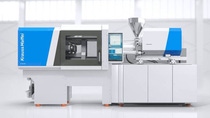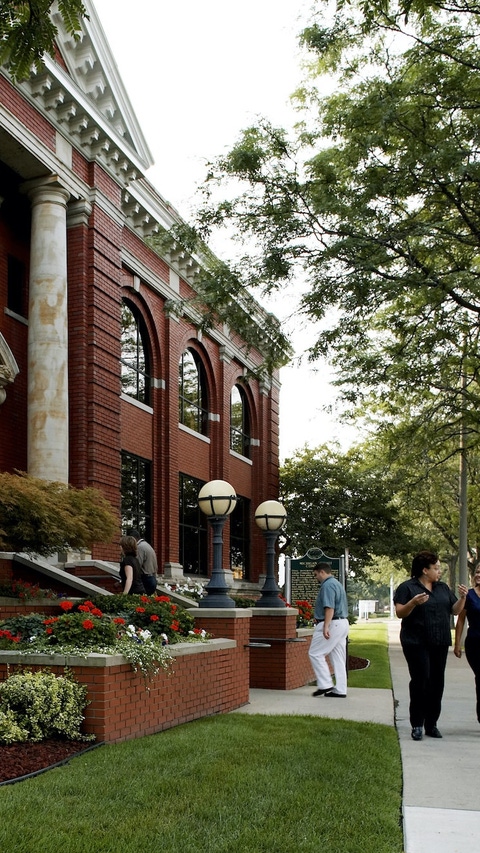Performance Polymers
The power of partnership in a pandemic
For BASF and KraussMaffei, strong coordination and communication are the keys to project success
Injection molding labs play an important role in a product’s development process and release, allowing organizations to create a small volume of product units for testing without making an expensive commitment to produce large quantities. In order to function their best, these labs need powerful modern injection molding machines and an efficient layout. They must also be as safe and environmentally friendly as possible.
Faced with an aging molding lab in Wyandotte, MI, BASF undertook an extensive redesign project that entailed the removal of outdated equipment and potential workplace hazards, installation of new injection molding machines, and a revised layout. BASF’s injection molding lab in Budd Lake, NJ, also provides release testing for the Wyandotte Engineering Plastics Compounding (EPC) plant.
Originally proposed in the summer of 2018, the project was completed in December of 2020 with almost no delays and zero safety mishaps – an accomplishment in ordinary times, let alone during a global pandemic.
The secret? Continuous cooperation and communication, plus a bit of ingenuity.
Out with the old
The main objective of the project was to replace of a number of outdated machines with newer, more advanced machines. The older machine lineup consisted of 4 machines that were between 21-34 years old.
Due to their age, these machines operated independently of one another, decreasing the lab’s efficiency while increasing its complexity. Some also had electrical or water lines protruding from their base, posing potential tripping hazards. BASF wanted the new injection molding machines to be “smart” and function as a cell of sorts to allow sharable injection profiles for harmonized operation and flexibility.
“We were looking for an industry-standard molding machine because we have a lot of different customers come through, so we wanted our equipment to be well-recognized”, says David Krueger, Quality Manager at BASF and Project Manager for the laboratory upgrades.
KraussMaffei, a leading manufacturer of production and processing machines, rose to the challenge. With their expertise and assistance, BASF ordered two high-tech all-electric injection molding machines.
Affectionately named Dennis and Beau after a retired BASF molding specialist and his successor, these machines belong to KraussMaffei’s PX product series, which feature excellent flexibility in a variety of applications thanks to a high injection capacity and modular design. The machines also boast a modern touchscreen control system, allowing users to create their own individual interfaces and share information between the two machines. The Smart Assist feature allows technicians to provide guided assistance from anywhere in the world.
“We can take the profiles from one machine and move them to another, which was impossible with our old setup,” says Krueger. “Because the machines are the same model, the training required is reduced, as is the number of spare parts and maintenance time.”

The right fit
Strong technical capabilities weren’t the only requirement for the new machines: with a location on the second floor, bringing the heavy machines into the lab would require either separating the machines into smaller parts or removing a large wall.
The latter being unideal, BASF needed their equipment supplier to be willing to disassemble the machine before installation, allowing it to fit onto a service elevator so it could be moved into the space.
“Injection molding machines are composed of a clamp and injection unit,” explains Rajesh Shah, Regional Sales Director at KraussMaffei. “Normally a 50-ton machine comes as one piece, so we had to take the measurement and weight of each half to make sure that it fit both from a weight perspective and from a dimension perspective.”
“That was a huge support,” says Krueger. “Raj and his team visited the plant to take the elevator’s dimensions to ensure everything would fit as planned.”
Adding to the logistical challenges of the project was the ongoing COVID-19 pandemic and its restrictions.
“We had some delays during that time because there were limitations about bringing people to the site, so we did as much pre-work as we could,” says Krueger. “When the machine arrived in the U.S., we didn't want to put it in a warehouse because of the risk of something happening in the warehouse and the potential for extra costs.”
Despite these minor hiccups, the machines were safely moved into the space.
“All the safety protocols and the social distancing rules were maintained during the project, and we didn't have any safety incidents or illnesses associated with the installation,” says Krueger.
New and improved
With the project completed, the Wyandotte lab, which is ISO 17025 certified, can benefit from the improved capabilities provided by advanced molding machines and a safer and more efficient layout.
Customers can create high-quality components using Ultramid®, Ultraform®, and Ultradur® engineering plastics made by BASF. Strong and versatile, these thermoplastics can be used for a variety of applications in industries such as automotive manufacturing, medical technologies and electronics.
Additionally, the all-electric machines will use less energy than hydraulic or hybrid machines, contributing to BASF’s sustainability objectives.
“One of the things BASF is working on is reducing our carbon footprint, and these all-electric machines are a huge step in that direction,” says Krueger. “They’re also a long-term commitment to the industry and the continuing commitment from BASF to be a strong supplier for our customers.”
Both BASF and KraussMaffei attribute the project’s success to the strong communication and coordination demonstrated by both parties throughout the project timeline.
“It was a wonderful collaboration,” says Shah. “Dave and his team had a lot of patience, and we had a couple of meetings with our teams before the machines arrived, so we understood exactly what we had to do. I think that's why the whole process went very smoothly. Dave did an excellent job in managing the complete project from BASF perspective.”
“I think it was a very successful project,” says Krueger. “We significantly upgraded our equipment and the design of our lab, and we were able to do it at the height of the quarantine and pandemic with cooperation and coordination from the people at KraussMaffei.”
Thank you to the team members who made this project possible:
Lab Leader: Tom Vick
Injection Molding Specialists: Mike Beauregard and Dennis Lozowski (retired)
QA Team: Roger Marquardt and Steve Sountas
Project Coordinators: Craig Fogus and Paul Hopkins
Project Manager: Dave Krueger
For more information on BASF’s injection molding capabilities, click here.
